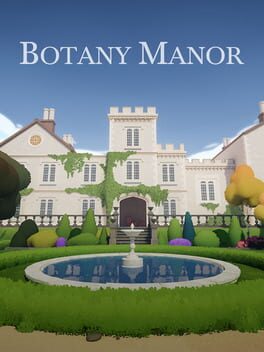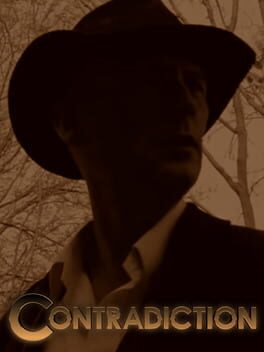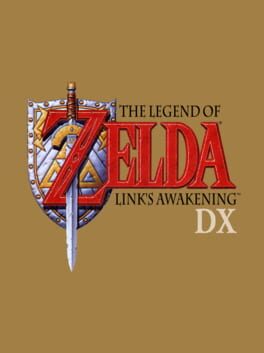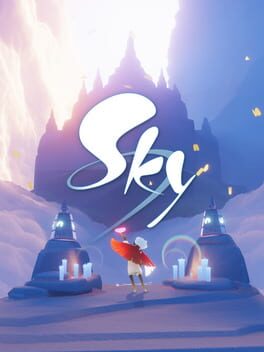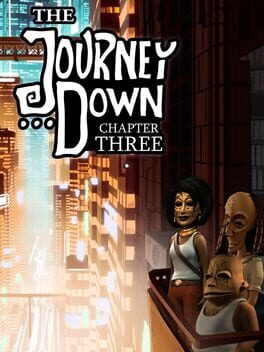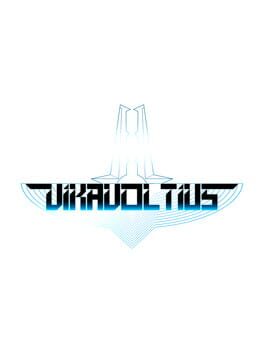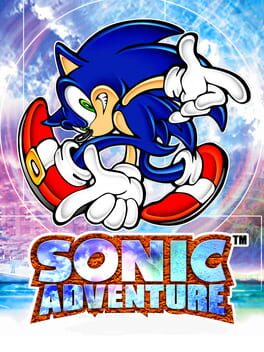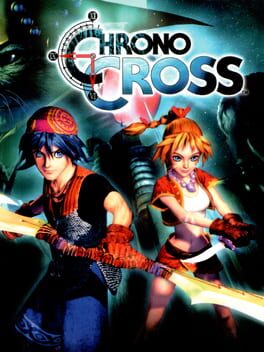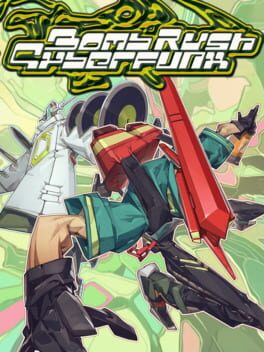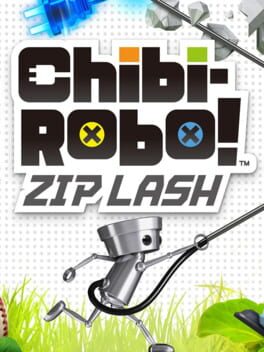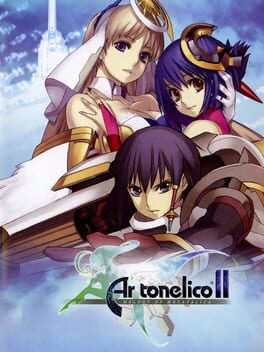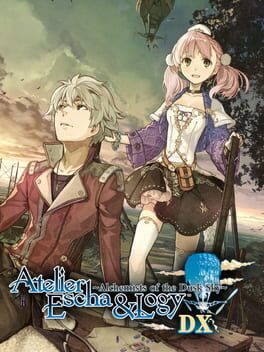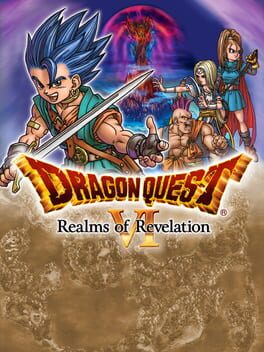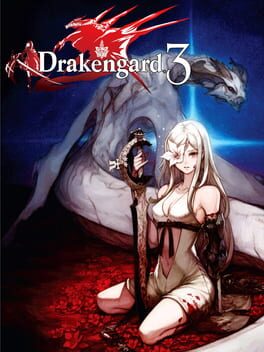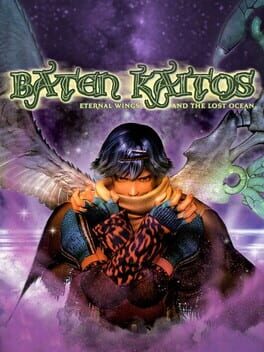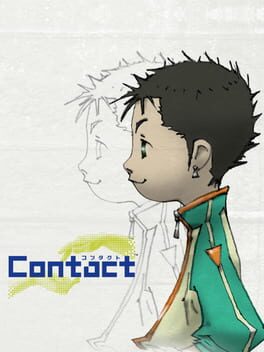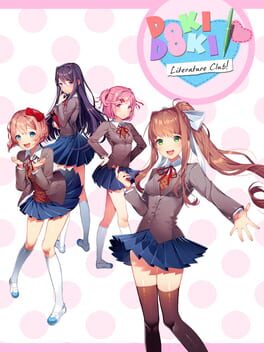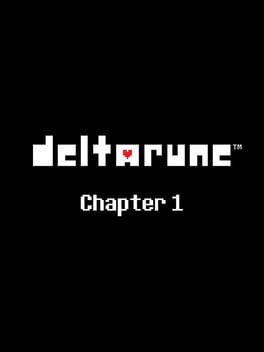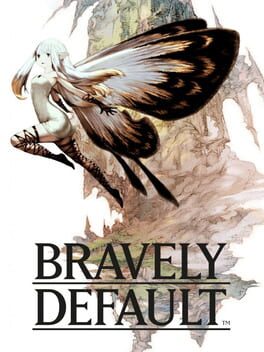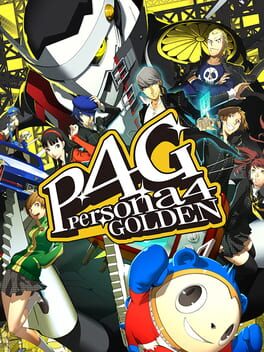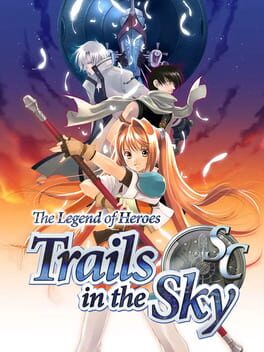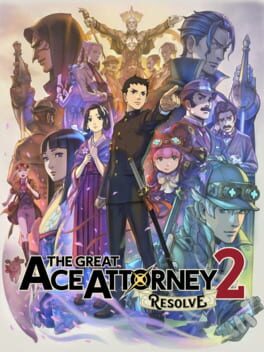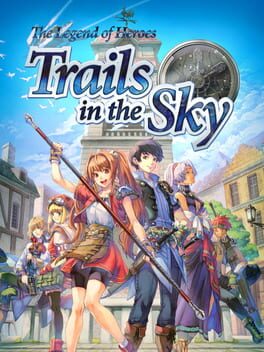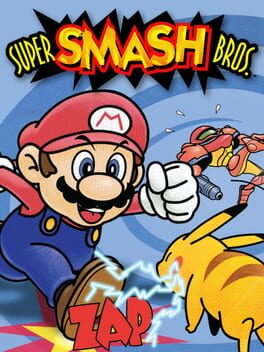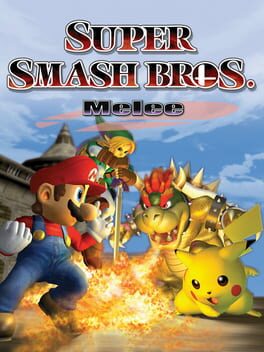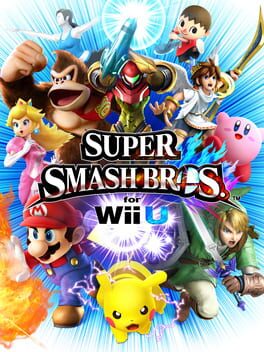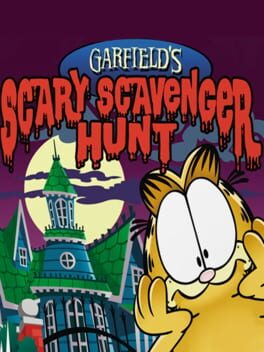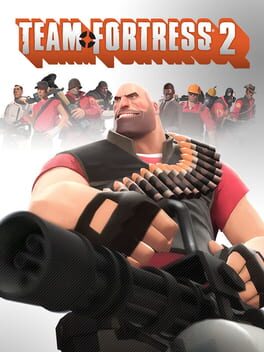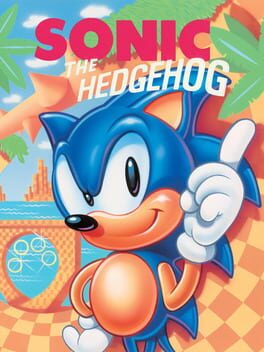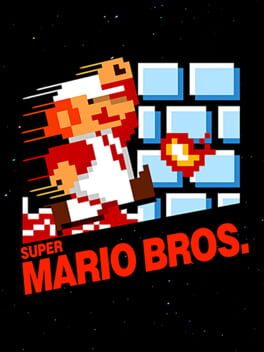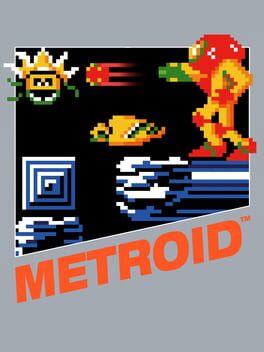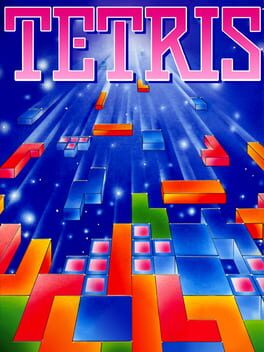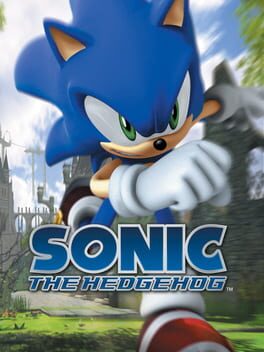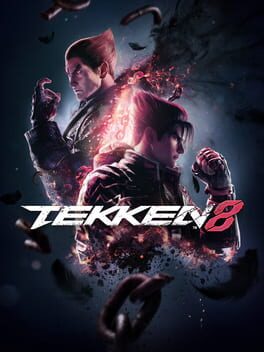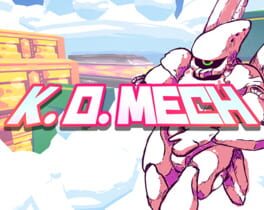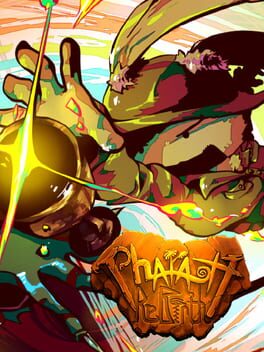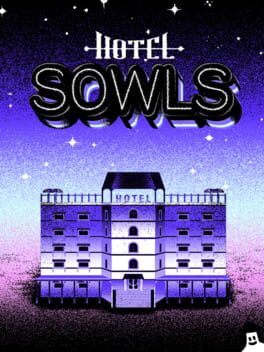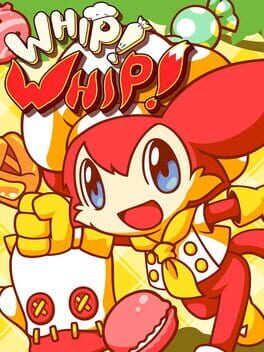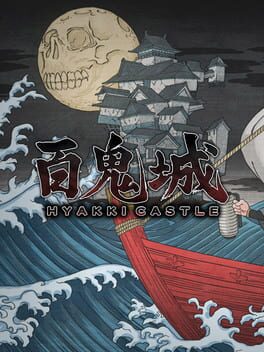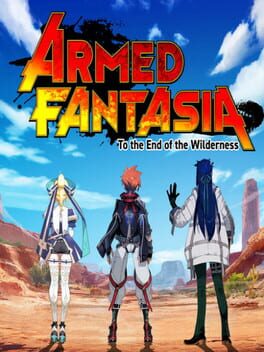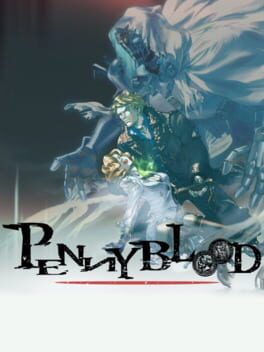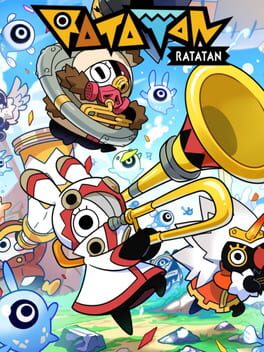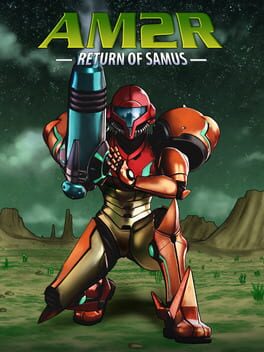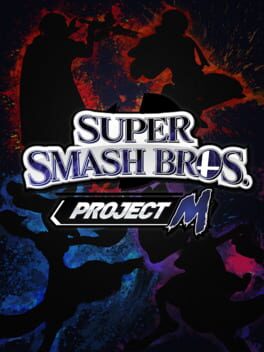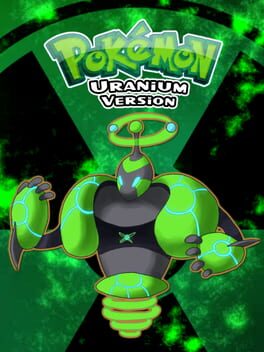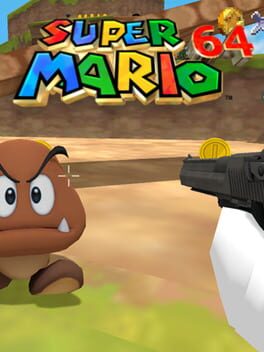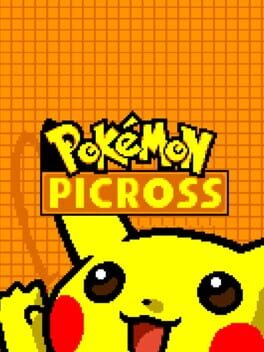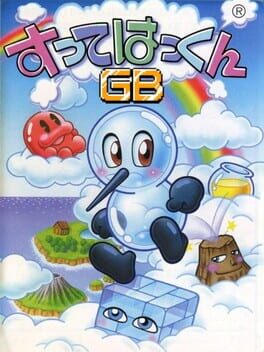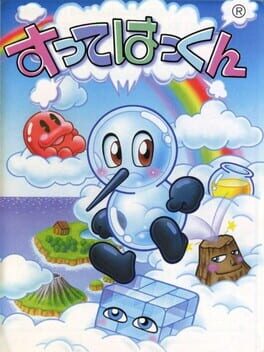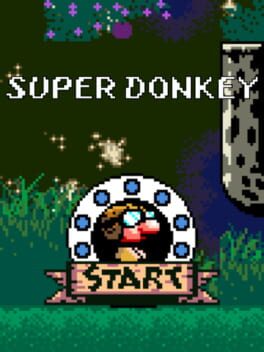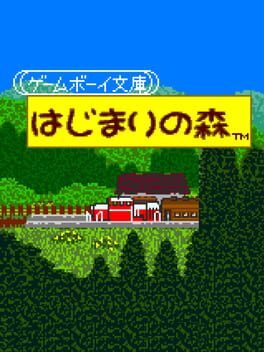Drax
BACKER
19933 reviews liked by Drax
Botany Manor
2024
Downton Abbey meets Gardeners’ World in what is essentially an Escape Room style puzzle video game.
To me, that’s the pitch of Botany Manor and whilst maybe that’s far too strange sounding I feel it hits all the points of how I’d explain the game more fully.
Botany Manor is set around 1890, as you can expect from the title you spend time in and around a manor. As a location, it’s quaint, colourful and pleasant to be around but is also much like a National Trust building you might visit somewhere in England.
It has all those positive aspects, but it also feels quite pompous and for me a little overbearing in areas. This tone is amplified by the little bits of story scattered throughout in various letters and other reading materials. It is a setting and style I know many will find enjoyable but I find fairly difficult to mesh with.
That’s the Downton Abbey part.
The Gardener’s World part, well really that’s just me throwing the first obviously gardening themed television show title that comes to mind - the Botany part of Botany Manor.
The main driving force of the story is that your protagonist Arabella Greene is a retired botanist who is exploring her old manor and of course gardens to fill out a blank herbarium by (re?)discovering the ideal situation for these, fantastical (fictional) plants to grow and by the end get a book deal out of it.
This gimmick does feel a little conceited, there’s a lot of hand waving in how the things in her own house are set up for these wild and magical plants, why no one is there but it’s recently lived in.
It is, as you may expect, not a barrier to enjoying the puzzles themselves but another small fence that I personally found hopping over to engage with the story a little difficult.
One thing that I did find intriguing that is sewn throughout the story is Arabella’s difficulties in getting a book deal and simply put, how much harder being a woman in that time period was, to even be listened to and respected.
So Botany Manor takes place in a manor and about botany. Exactly what it says on the tin.
Gameplay wise your objective is to fill out the blank pages of that previously mentioned herbarium.
Each segment of the house gives you things to interact with and some conveniently placed tables that include pots, soil and a set of drawers for the seeds you have found.
I’ve called these plants magical and fantastical because although things can grow in all sorts of circumstances the gamification and simplifying means what you grow is less about slowly feeding, waiting and pruning and more about the locations and the environments plants may grow in and recreating them.
To keep things exciting it may be a plant grows near a volcano, perhaps in lightning storms or together with specific animals.
I won’t give too many more details than that because I’d be ruining the thrust of the game.
The puzzles and the structure of the game is where my escape room comparison comes in.
Clues and items for each of the plants you must grow to fill the pages of the herbarium are found by searching rooms, occasionally interacting with parts of them to obtain key items and throughout the length of the game solving these will gain you access to more parts of the manor and its surrounding gardens, by either keys to unlock doors or revealing paths to connect areas in an enjoyable labyrinthine way.
The tension isn’t there, unlike an Escape Room there is no risk of losing outside of getting stuck, bored and closing down the game but whilst I played Botany Manor it felt a lot like other games I had played in the past.
As an aside, it reminded me of the MC2games series of Escape Room puzzlers, but with more budget giving it a slightly clearer story and nicer presentation.
Some of those games I have reviewed here on backloggd and although I don't rate some of them super highly, do enjoy them for what they are and the shorter, respectful, amount of time they want from me. Enough to scratch an itch.
Compared to these other games though, mechanically is where Botany Manor has a few issues for me. First off is the size of the place, it’s a large English Manor house so it is somewhat expected, I do also applaud the almost Dark Souls-like shortcut unlocking that makes traversing a little easier but even with that, for my liking, there is too much running back and forth.
The size of the setting and the annoyance of navigating is mostly due to the poor inventory and note taking management the game has.
Each page of the herbarium you can collect clues for, once you have selected the correct clues the description of the plant will change, filling out the story a little more.
The herbarium itself has maps which are nice and also a page on clues collected, but, significantly has no notes outside of where you found these clues to what they said.
If you find a pattern or numbers that you realise are useful elsewhere then you better have your own blank page to fill out in the real world because Arabella must have photographic memory as she doesn’t bother.
It’s a simple issue solved by real life note taking and that is not something I am opposed to typically, but in this setting, the amount of information surrounded by fluff, and with a blank notebook in-game hand it created a barrier to my enjoyment, a false way to lengthen the game and simply another thing that took me out of the setting.
The further you get into the game, the larger area you have. It is kind enough to not make you run back and forth throughout the whole house but this “escape room” ends up feeling a little more like an escape warehouse which might sound cool until I say that the size change does not mean the difficulty or even the amount of clues to find increase at the same rate.
One final complaint as a footnote is that interacting with items, the simple form of clicking to pick up and place down, is oddly too free. You can put things down anywhere which could cause you to forget where they are. This was not an issue I came into, but I did have a bug where I picked up one item, placed it on a shelf next to another and they became fused and then suddenly non-interactive. A minor bug like this would usually not be worth mentioning but that item, it was key to one of the final plants to finish the game and I was almost soft locked.
Botany Manor only has a single save and no chapter restarts, so if I could not unlock this fusion of items I would have to start the entire game again.
Thankfully with some extremely janky movement I was able to pick the item up again (clipping through a wall outside of where I could normally touch it) and finish the game.
I held off on putting down my thoughts about this title too fast because as you can imagine the annoyance and the time wasted on out bugging a bug soured me further. Now I can look back and laugh but it’s another small mark against the title as a whole.
Botany Manor is a pleasant time, the puzzles are perhaps too easy but fun and creative, it’s a fantastic title to have as a part of game pass but between some very strange design choices and a story and setting I did not gel with I didn’t really find that I enjoyed myself more here than I have playing much cheaper - at asking price and budget - equivalents on Steam.
To me, that’s the pitch of Botany Manor and whilst maybe that’s far too strange sounding I feel it hits all the points of how I’d explain the game more fully.
Botany Manor is set around 1890, as you can expect from the title you spend time in and around a manor. As a location, it’s quaint, colourful and pleasant to be around but is also much like a National Trust building you might visit somewhere in England.
It has all those positive aspects, but it also feels quite pompous and for me a little overbearing in areas. This tone is amplified by the little bits of story scattered throughout in various letters and other reading materials. It is a setting and style I know many will find enjoyable but I find fairly difficult to mesh with.
That’s the Downton Abbey part.
The Gardener’s World part, well really that’s just me throwing the first obviously gardening themed television show title that comes to mind - the Botany part of Botany Manor.
The main driving force of the story is that your protagonist Arabella Greene is a retired botanist who is exploring her old manor and of course gardens to fill out a blank herbarium by (re?)discovering the ideal situation for these, fantastical (fictional) plants to grow and by the end get a book deal out of it.
This gimmick does feel a little conceited, there’s a lot of hand waving in how the things in her own house are set up for these wild and magical plants, why no one is there but it’s recently lived in.
It is, as you may expect, not a barrier to enjoying the puzzles themselves but another small fence that I personally found hopping over to engage with the story a little difficult.
One thing that I did find intriguing that is sewn throughout the story is Arabella’s difficulties in getting a book deal and simply put, how much harder being a woman in that time period was, to even be listened to and respected.
So Botany Manor takes place in a manor and about botany. Exactly what it says on the tin.
Gameplay wise your objective is to fill out the blank pages of that previously mentioned herbarium.
Each segment of the house gives you things to interact with and some conveniently placed tables that include pots, soil and a set of drawers for the seeds you have found.
I’ve called these plants magical and fantastical because although things can grow in all sorts of circumstances the gamification and simplifying means what you grow is less about slowly feeding, waiting and pruning and more about the locations and the environments plants may grow in and recreating them.
To keep things exciting it may be a plant grows near a volcano, perhaps in lightning storms or together with specific animals.
I won’t give too many more details than that because I’d be ruining the thrust of the game.
The puzzles and the structure of the game is where my escape room comparison comes in.
Clues and items for each of the plants you must grow to fill the pages of the herbarium are found by searching rooms, occasionally interacting with parts of them to obtain key items and throughout the length of the game solving these will gain you access to more parts of the manor and its surrounding gardens, by either keys to unlock doors or revealing paths to connect areas in an enjoyable labyrinthine way.
The tension isn’t there, unlike an Escape Room there is no risk of losing outside of getting stuck, bored and closing down the game but whilst I played Botany Manor it felt a lot like other games I had played in the past.
As an aside, it reminded me of the MC2games series of Escape Room puzzlers, but with more budget giving it a slightly clearer story and nicer presentation.
Some of those games I have reviewed here on backloggd and although I don't rate some of them super highly, do enjoy them for what they are and the shorter, respectful, amount of time they want from me. Enough to scratch an itch.
Compared to these other games though, mechanically is where Botany Manor has a few issues for me. First off is the size of the place, it’s a large English Manor house so it is somewhat expected, I do also applaud the almost Dark Souls-like shortcut unlocking that makes traversing a little easier but even with that, for my liking, there is too much running back and forth.
The size of the setting and the annoyance of navigating is mostly due to the poor inventory and note taking management the game has.
Each page of the herbarium you can collect clues for, once you have selected the correct clues the description of the plant will change, filling out the story a little more.
The herbarium itself has maps which are nice and also a page on clues collected, but, significantly has no notes outside of where you found these clues to what they said.
If you find a pattern or numbers that you realise are useful elsewhere then you better have your own blank page to fill out in the real world because Arabella must have photographic memory as she doesn’t bother.
It’s a simple issue solved by real life note taking and that is not something I am opposed to typically, but in this setting, the amount of information surrounded by fluff, and with a blank notebook in-game hand it created a barrier to my enjoyment, a false way to lengthen the game and simply another thing that took me out of the setting.
The further you get into the game, the larger area you have. It is kind enough to not make you run back and forth throughout the whole house but this “escape room” ends up feeling a little more like an escape warehouse which might sound cool until I say that the size change does not mean the difficulty or even the amount of clues to find increase at the same rate.
One final complaint as a footnote is that interacting with items, the simple form of clicking to pick up and place down, is oddly too free. You can put things down anywhere which could cause you to forget where they are. This was not an issue I came into, but I did have a bug where I picked up one item, placed it on a shelf next to another and they became fused and then suddenly non-interactive. A minor bug like this would usually not be worth mentioning but that item, it was key to one of the final plants to finish the game and I was almost soft locked.
Botany Manor only has a single save and no chapter restarts, so if I could not unlock this fusion of items I would have to start the entire game again.
Thankfully with some extremely janky movement I was able to pick the item up again (clipping through a wall outside of where I could normally touch it) and finish the game.
I held off on putting down my thoughts about this title too fast because as you can imagine the annoyance and the time wasted on out bugging a bug soured me further. Now I can look back and laugh but it’s another small mark against the title as a whole.
Botany Manor is a pleasant time, the puzzles are perhaps too easy but fun and creative, it’s a fantastic title to have as a part of game pass but between some very strange design choices and a story and setting I did not gel with I didn’t really find that I enjoyed myself more here than I have playing much cheaper - at asking price and budget - equivalents on Steam.
Half of all video game humor is “What if Mario’s mushrooms were actually drugs”, and the other half is “Can you imagine how people would react to a game protagonist in real life”, so I’m glad Contradiction made at least one of those premises funny for the first time with its live-action goofiness. Obviously, live-action adventure games have been done before, but this one strikes the perfect balance for making it work: it doesn’t play up the inherent silliness to eye rolling levels, but uses just enough to where the goofs of the player feel adequately contextualized. Making that work in an otherwise straight-faced murder mystery seems like a pretty difficult task, but it’s achieved with one of my favorite game protagonists of all time, Detective Jenks. He has a friendly, silly demeanor, but this innocent charm belies a sharp wit that’s ready to capitalize on the slightest slip of the tongue. Even when players are asking the wrong questions, it feels completely natural, as if Jenks is letting people think he’s utterly incompetent to make them drop their guard. Both you and the subject of his questioning may find his behavior hilarious and unusual, but when he points out one of the titular contradictions, it’s just as exciting as a real thriller. That’s what makes this game such a fun experience, it straddles the line between mystery, comedy, and drama in such an entertaining way that there’s really nothing like it. My only complaint is that the ending doesn’t feel like it was originally planned, and the director has made no secret that there was inadequate funding to fully deliver on all the plot threads. While I appreciate how not all the details of the town end up fitting together like a perfect jigsaw puzzle, the ending doesn’t capitalize on even half of what was set up, so it feels like a major missed opportunity. It’s like Spot the Liar is just the first episode of a much greater story, one which will, unfortunately, probably never be told. That is, unless a bunch of people were to suddenly buy this game and spread the word about how cool it is. I don’t know how someone would get the word out like that, especially while admitting its faults at the same time, but with any luck, the message can reach some people of impeccable taste and get the recognition it deserves.
P.S./Fun Fact: The game’s director was Tim Follin, who you might recognize as the composer of the mind blowing title theme of Solstice for NES and the prog trip that is Plok’s beach theme, among many others. The guy is genuinely legendary, just one more reason to check this game out.
P.S./Fun Fact: The game’s director was Tim Follin, who you might recognize as the composer of the mind blowing title theme of Solstice for NES and the prog trip that is Plok’s beach theme, among many others. The guy is genuinely legendary, just one more reason to check this game out.
This review contains spoilers
In 2019, back in those dreadful days when it was normal and expected of one to have a daily commute, I was playing Link's Awakening on my way home. Tired after a long day's work, I wasn't keen on making any significant progress, just wanted to look around. In the game's main hub town I've found Marin, who began to sing Ballad of the Windfish, a song I've heard a long-long time ago. I sat there, transfixed. I was in there, immersed if you will, a sensation the PS4 that waited for me at home sadly couldn't replicate with all of its hyper realistic graphics.
That's a cliche, I know, but I can't help being sentimental. I watched the little doggie hop about, the butterflies float about, the classic flowers bounce up and down, enjoyed my ability to move about without stopping the song, and goddamn. How did these wizards manage to squeeze this much life into a gameboy game?
After a bit, the magic was gone, I was staring at pixels and the sharp 8-bit sounds made my ears bleed, so I put the game away. But I was not the same after that. It was as if an alternate timeline, when I had Nintendos instead of (or alongside) Playstations as a child, converged with this one. I was, as Scallops Hotel once put it, nostalgic for something I never had.
Usually when someone, as kids today say, gasses a game from their childhood up, it's hard for others to get in on it, as those games tend to be enhanced by the vividness of a child's perception and imagination. I've been burned by Zeldas many times before on that front. Yet this game did it for me, first on an emotional level, and then on an intellectual one as well. It expresses childhood itself in a way only a videogame could.
At the end, after the player wakes the Windfish up, the entire game's world vanishes, being only said fish's (mammal's) dream. The bittersweet feeling one gets from it is analogous with that from growing up. Both things are something one has to willingly do, put effort towards. You don't wanna do it too fast, you want to cherish what you have and be in the moment, but you can't linger for too long. In a videogame, not making progress eventually makes the artifice obvious, breaks the magic of its presentation. In real life, staying an overdue kid is just not pretty. Look at Seth Rogen.
Even if it's gone, even if you can't go to places where you grew up or see people you remember, even if doing things that used to make you happy don't anymore, the initial experience of it all can still be found, deep within the folds of your soul. Summon it up every now and then, like a fleeting dream, to keep your feelings alive. After all, we live inside a dream.
That's a cliche, I know, but I can't help being sentimental. I watched the little doggie hop about, the butterflies float about, the classic flowers bounce up and down, enjoyed my ability to move about without stopping the song, and goddamn. How did these wizards manage to squeeze this much life into a gameboy game?
After a bit, the magic was gone, I was staring at pixels and the sharp 8-bit sounds made my ears bleed, so I put the game away. But I was not the same after that. It was as if an alternate timeline, when I had Nintendos instead of (or alongside) Playstations as a child, converged with this one. I was, as Scallops Hotel once put it, nostalgic for something I never had.
Usually when someone, as kids today say, gasses a game from their childhood up, it's hard for others to get in on it, as those games tend to be enhanced by the vividness of a child's perception and imagination. I've been burned by Zeldas many times before on that front. Yet this game did it for me, first on an emotional level, and then on an intellectual one as well. It expresses childhood itself in a way only a videogame could.
At the end, after the player wakes the Windfish up, the entire game's world vanishes, being only said fish's (mammal's) dream. The bittersweet feeling one gets from it is analogous with that from growing up. Both things are something one has to willingly do, put effort towards. You don't wanna do it too fast, you want to cherish what you have and be in the moment, but you can't linger for too long. In a videogame, not making progress eventually makes the artifice obvious, breaks the magic of its presentation. In real life, staying an overdue kid is just not pretty. Look at Seth Rogen.
Even if it's gone, even if you can't go to places where you grew up or see people you remember, even if doing things that used to make you happy don't anymore, the initial experience of it all can still be found, deep within the folds of your soul. Summon it up every now and then, like a fleeting dream, to keep your feelings alive. After all, we live inside a dream.
Played through the initial set of story levels to get to the credits and the "Your real journey is just beginning..." message. Don't think I'm going to bother logging in daily or otherwise engaging much with the F2P GaaS elements, but if you're a fan of Journey or any of the numerous games it inspired, it's still worth checking out (it's free, after all) just to see how it mixes Journey-esque levels with an MMO. The level design, story, and pacing are unsurprisingly not up to par with Journey or other top-tier games in that genre, but I had a number of nice online interactions (either passively, with messages left behind by other players, or by actively interacting with them; another player helped guide me through an obstacle-heavy chunk of one level) that add some interesting flavor to the experience. And even with the obvious graphical limitations resulting from Sky's mobile origins, the art direction is still quite nice to look at.
very much another last episode/chapter in a long running episodic game. i'd place it below both of the previous entries but it isn't a massive downgrade.
the more nautical setting was a bummer and i was sad to see it took up a larger chunk of the episode than expected. the cast of characters is still great though some of their personalities felt a bit muted. music was nice as always though clearly different due to the change in composer (RIP Simon D'souza) among other things.
glad to have finally played this trilogy. it only sat in my library for countless years.
the more nautical setting was a bummer and i was sad to see it took up a larger chunk of the episode than expected. the cast of characters is still great though some of their personalities felt a bit muted. music was nice as always though clearly different due to the change in composer (RIP Simon D'souza) among other things.
glad to have finally played this trilogy. it only sat in my library for countless years.
Vikavoltius
2020
There’s something you see online often that has become a parody: “Nintendo, hire this man”.
Typically this will be alongside Mario in a “photo-realistic” latest Unreal Engine world and have virtually no artistic merit what-so-ever.
However, I find myself thinking that stupid line, or at least thinking that I wish Nintendo would do more things like this.
Vikavoltius is a fan-made shmup in the style of Prodius and its ilk. Where instead of a spaceship you are controlling the Bug/Electric type Pokémon from Sun and Moon: Vikavolt.
The game is pay what you want and really it is so very short (1 stage) that I wouldn’t blame someone for paying nothing at all.
The single stage has you shooting down other Pokémon that fly in different patterns, some that fire projectiles and finishing off with a boss that I won’t spoil but I am sure there are pictures all over the page (it looks like a UFO).
Quantity there is not, but quality is where Vikavoltius makes you feel like the experience was a good use of your time. The sprites are fantastic, the remixed classic themes are brilliant and the simple but elegant power up system is enjoyable enough to do a small handful of runs without being bored to tears by the repetition of a single level.
It’s a shame there isn’t more as I feel there are a few other good Pokémon that could be transferred to a shmup and fit in perfectly.
Vikavolt themselves evolves from Charjabug and I’d love a road based level to start with, for reference it looks a bit like a bus.
I’ll finish as I started though. This may be a short-sweet proof of concept more than anything but I do miss having these mini-games from Nintendo themselves. DSiWare is long gone but Pokémon loves to shit out all sorts of other stuff and has done many other genres in a fuller form but in a much lower quality than Vikavoltius.
Typically this will be alongside Mario in a “photo-realistic” latest Unreal Engine world and have virtually no artistic merit what-so-ever.
However, I find myself thinking that stupid line, or at least thinking that I wish Nintendo would do more things like this.
Vikavoltius is a fan-made shmup in the style of Prodius and its ilk. Where instead of a spaceship you are controlling the Bug/Electric type Pokémon from Sun and Moon: Vikavolt.
The game is pay what you want and really it is so very short (1 stage) that I wouldn’t blame someone for paying nothing at all.
The single stage has you shooting down other Pokémon that fly in different patterns, some that fire projectiles and finishing off with a boss that I won’t spoil but I am sure there are pictures all over the page (it looks like a UFO).
Quantity there is not, but quality is where Vikavoltius makes you feel like the experience was a good use of your time. The sprites are fantastic, the remixed classic themes are brilliant and the simple but elegant power up system is enjoyable enough to do a small handful of runs without being bored to tears by the repetition of a single level.
It’s a shame there isn’t more as I feel there are a few other good Pokémon that could be transferred to a shmup and fit in perfectly.
Vikavolt themselves evolves from Charjabug and I’d love a road based level to start with, for reference it looks a bit like a bus.
I’ll finish as I started though. This may be a short-sweet proof of concept more than anything but I do miss having these mini-games from Nintendo themselves. DSiWare is long gone but Pokémon loves to shit out all sorts of other stuff and has done many other genres in a fuller form but in a much lower quality than Vikavoltius.
Sonic Adventure
1998
Before playing this game, the only 3D Sonic I ever played was Sonic Colors. And even then, a good chunk of that game was in 2D. So Adventure was my first fully 3D Sonic game ever. For years, I'd hear people say this game was broken beyond belief or just simple a "guilty pleasure" game that they enjoy despite being shit. While I did not love it like some people do, I can personally say I did not think the games were either of those things.
The game is broken up into 6 (technically 7 if you complete all other routes) character routes. You can play as Sonic, Tails, Knuckles, Amy, Big the cat and Gamma respectively. Each of these characters play differently from each other, whether it's for better or worse, and even tho each playthrough varies in quality, I can at least commend how ambitious this is. Because in each character's playthrough, you get different cutscenes and also context for certain scenes that may not be explained in earlier playthroughs. As my friend Lemonstrade said, it's sort of similar to what Drakennier does which again is super cool conceptually, especially for a 1998 game.
But back to the actual characters, Sonic is the clear best one here. He has his spin dash, is of course the fastest in the game and also has a super fun aerial dash. I've heard people say the controls are bad in this game and I simply don't get that at all. Sonic, at least, feels simply perfect to control. The levels on the other hand, I can see people having issues with. I disagreed with the fact this game is broken beyond belief, but it definitely can be a bit broken if you're unlucky. I only glitched through the stage like 2 or 3 times, but the first time it happened was on the very first stage. That made me think the entire game would be broken, but it wasn't. Unless I got lucky, those claims, while still credible sometimes...are massively overblown. Besides that though, Sonic's stages while still fun, can feel incredibly janky just because of how fast he goes. It's hard to explain but if you've played the game you'd know, a lot of times the animations and your movement through levels can feel very unwieldly. It can be really hard to control sonic sometimes, and it often looks super awkward when looking back at it. Like I said it's hard to explain, and while I still had a ton of fun with his levels (just because he feels so good to controls) I can't help but think thee levels feel off. Again, this is mostly when you're at full speed going through loop de loops and shit. When it's slower sections you're going through, it's not an issue.
As for the other characters, they all have significantly less stages than Sonic. Tails has you racing against sonic, and with him being able to glide, you can take some seriously crazy shortcuts. The game itself even encourages this which I thought was pretty neat. Knuckles has you searching for three master emerald shards. It's basically a treasure hunt, with the emerald icons turning different colors depending on how close you are to them. These were alright, but story-wise I wasn't really a fan. Honestly thought his story would be more different from Sonic's than it was, not to mention the final Chaos fight was barely different from Sonic's (and Tails had a unique fight for his ending). Amy was probably my least favorite character to use. Her levels consisted of getting to the end like Sonic, while running away from one of Robotnik's robots. Problem is, while her hammer bounce is kinda cool, her moveset isn't nearly as fun as Sonic's yet her levels are still long like Sonic's (which isn't much of an issue with Tails and Knuckles). That plus, besides the one Gamma scene, her cutscenes were lame. Big the cat is the most contentious character by far, and honestly I didn't hate him. Yeah his cutscenes are super dumb and don't add much to the story. However his campaign is by far the shortest, and the fishing is actually really easy (and kinda fun) once you get the hang of it. Gamma is by far the best character next to Sonic. Not only are his stages fast paced, with you having to kill enemies quickly to get more time to your total. His story is actually significantly different compared to the others, and quite touching at that. If I had to rank each character's campaigns, I'd say Sonic>Gamma>Tails>Big>Knuckles>Amy.
To go to each actual level, you have to navigate the hubworld. For a 1998 game, it's not bad but it can feel somewhat empty I felt. Though, there are things to get that aren't just apart of the main story. There are some optional collectables and even some minigames you can play. There's also the chao garden which, I tried to get to work but since I was emulating the game, I suspected there was an add on I needed or something idk. But from the little I've heard, it does sound fun.
The story in general, does have its high points, like the aforementioned Gamma campaign and the ending is really nice. It's simple but effective. However, the actual voice acting is horribly stilted a lot of the time. It's not even a so bad it's good situation, it was just mediocre a lot of the time. That is, except for Robotnik who is super over the top but hilarious. Even despite the fact they reuse fight dialogue in actual scenes (which is jarring for sure) his dialogue is super duper memorable and easily the highlight. Something else that was memorable were some of the face animations, goddamn are they awful sometimes.
I didn't like LOVE the soundtrack like some people do, but it is quite nice overall. Very experimental which I appreciate a ton. My favorite songs were probably Red Skull Mountain, Welcome to Station Square and Egg Carrier: A Song That Keeps Us on the Move.
Once you complete all 6 character routes, you unlock the 7th and final one..Super Sonic. This is essentially just the final boss and some closure on the story, but it's definitely satisfying. You become Super Sonic, defeat Chaos's final form at supersonic speed, and in turn this cleanses Chaos of his evil as we find out he wasn't ever bad from the start. The closure on the whole Chao's and the past cutscenes was really nice. That along with Gamma's scenes ofc, easily the highlights of the story.
This game is definitely flawed in some ways, and Adventure 2 might improve on everything in this game idk. But I can officially say, this game is overall good and that Sonic had a good transition to 3D. Not everything works in this game, but I can acknowledge this game is full of heart.
May drop it down to a 6 cuz I was feeling like that for a good while but for now it's a 7.
The game is broken up into 6 (technically 7 if you complete all other routes) character routes. You can play as Sonic, Tails, Knuckles, Amy, Big the cat and Gamma respectively. Each of these characters play differently from each other, whether it's for better or worse, and even tho each playthrough varies in quality, I can at least commend how ambitious this is. Because in each character's playthrough, you get different cutscenes and also context for certain scenes that may not be explained in earlier playthroughs. As my friend Lemonstrade said, it's sort of similar to what Drakennier does which again is super cool conceptually, especially for a 1998 game.
But back to the actual characters, Sonic is the clear best one here. He has his spin dash, is of course the fastest in the game and also has a super fun aerial dash. I've heard people say the controls are bad in this game and I simply don't get that at all. Sonic, at least, feels simply perfect to control. The levels on the other hand, I can see people having issues with. I disagreed with the fact this game is broken beyond belief, but it definitely can be a bit broken if you're unlucky. I only glitched through the stage like 2 or 3 times, but the first time it happened was on the very first stage. That made me think the entire game would be broken, but it wasn't. Unless I got lucky, those claims, while still credible sometimes...are massively overblown. Besides that though, Sonic's stages while still fun, can feel incredibly janky just because of how fast he goes. It's hard to explain but if you've played the game you'd know, a lot of times the animations and your movement through levels can feel very unwieldly. It can be really hard to control sonic sometimes, and it often looks super awkward when looking back at it. Like I said it's hard to explain, and while I still had a ton of fun with his levels (just because he feels so good to controls) I can't help but think thee levels feel off. Again, this is mostly when you're at full speed going through loop de loops and shit. When it's slower sections you're going through, it's not an issue.
As for the other characters, they all have significantly less stages than Sonic. Tails has you racing against sonic, and with him being able to glide, you can take some seriously crazy shortcuts. The game itself even encourages this which I thought was pretty neat. Knuckles has you searching for three master emerald shards. It's basically a treasure hunt, with the emerald icons turning different colors depending on how close you are to them. These were alright, but story-wise I wasn't really a fan. Honestly thought his story would be more different from Sonic's than it was, not to mention the final Chaos fight was barely different from Sonic's (and Tails had a unique fight for his ending). Amy was probably my least favorite character to use. Her levels consisted of getting to the end like Sonic, while running away from one of Robotnik's robots. Problem is, while her hammer bounce is kinda cool, her moveset isn't nearly as fun as Sonic's yet her levels are still long like Sonic's (which isn't much of an issue with Tails and Knuckles). That plus, besides the one Gamma scene, her cutscenes were lame. Big the cat is the most contentious character by far, and honestly I didn't hate him. Yeah his cutscenes are super dumb and don't add much to the story. However his campaign is by far the shortest, and the fishing is actually really easy (and kinda fun) once you get the hang of it. Gamma is by far the best character next to Sonic. Not only are his stages fast paced, with you having to kill enemies quickly to get more time to your total. His story is actually significantly different compared to the others, and quite touching at that. If I had to rank each character's campaigns, I'd say Sonic>Gamma>Tails>Big>Knuckles>Amy.
To go to each actual level, you have to navigate the hubworld. For a 1998 game, it's not bad but it can feel somewhat empty I felt. Though, there are things to get that aren't just apart of the main story. There are some optional collectables and even some minigames you can play. There's also the chao garden which, I tried to get to work but since I was emulating the game, I suspected there was an add on I needed or something idk. But from the little I've heard, it does sound fun.
The story in general, does have its high points, like the aforementioned Gamma campaign and the ending is really nice. It's simple but effective. However, the actual voice acting is horribly stilted a lot of the time. It's not even a so bad it's good situation, it was just mediocre a lot of the time. That is, except for Robotnik who is super over the top but hilarious. Even despite the fact they reuse fight dialogue in actual scenes (which is jarring for sure) his dialogue is super duper memorable and easily the highlight. Something else that was memorable were some of the face animations, goddamn are they awful sometimes.
I didn't like LOVE the soundtrack like some people do, but it is quite nice overall. Very experimental which I appreciate a ton. My favorite songs were probably Red Skull Mountain, Welcome to Station Square and Egg Carrier: A Song That Keeps Us on the Move.
Once you complete all 6 character routes, you unlock the 7th and final one..Super Sonic. This is essentially just the final boss and some closure on the story, but it's definitely satisfying. You become Super Sonic, defeat Chaos's final form at supersonic speed, and in turn this cleanses Chaos of his evil as we find out he wasn't ever bad from the start. The closure on the whole Chao's and the past cutscenes was really nice. That along with Gamma's scenes ofc, easily the highlights of the story.
This game is definitely flawed in some ways, and Adventure 2 might improve on everything in this game idk. But I can officially say, this game is overall good and that Sonic had a good transition to 3D. Not everything works in this game, but I can acknowledge this game is full of heart.
May drop it down to a 6 cuz I was feeling like that for a good while but for now it's a 7.
Chrono Cross
1999
initially was going to convey this in a meaner, snarkier way for the bit but with how this game tied into trigger closer to the end i decided not to. the game is not subtle about how it feels having to follow up a dream team project like trigger and a certain set of characters basically have to refrain themselves from explicitly saying serge ruined chrono trigger, and because of that i would honestly feel kind of bad bringing that kind of attitude with this review. regardless, while i played chrono cross, the main thought that went through my head was "how is it that people thought cross didn't live up to trigger rather than the other way around?" but as i finished the game and write this review i feel as though cross didn't need to live up to trigger and that hinging its value on whether or not it does is a very childish way of looking at things.
to me, chrono trigger is a game that is held back by how near perfect it is. there's so little wrong with it that at least to me nothing really stands out anymore. there's nothing to grab onto, no imperfections to make it feel "complete" to me and as such i feel as though its reverence, while not necessarily misplaced, is harder for me to grasp because to me a "perfect" game without imperfections, as contradictory as it sounds, will never be perfect to me. meanwhile, chrono cross i found to be an amazing, thought provoking, mesmerizing game that pushed the playstation to its limits aesthetically, a game with so much to say about what it means to live and exist, what it means to dream. chrono cross is messy and imperfect in such beautiful ways, it knows its following up chrono trigger and while it still intends to be a continuation of a work like trigger it doesn't care what kind of shadow its living in and intends to be its own experience, flaws and all.
whether or not it lives up to chrono trigger is irrelevant, the arguments surrounding such are just attempts at insecure and childish posturing because these games, while connected are so different that its hardly worth comparing in that sense. i understand that nothing exists in a vacuum, let alone a sequel, but maybe it would do some people a lot of good to both understand the context of something like chrono cross while also letting it be its own experience.
to me, chrono trigger is a game that is held back by how near perfect it is. there's so little wrong with it that at least to me nothing really stands out anymore. there's nothing to grab onto, no imperfections to make it feel "complete" to me and as such i feel as though its reverence, while not necessarily misplaced, is harder for me to grasp because to me a "perfect" game without imperfections, as contradictory as it sounds, will never be perfect to me. meanwhile, chrono cross i found to be an amazing, thought provoking, mesmerizing game that pushed the playstation to its limits aesthetically, a game with so much to say about what it means to live and exist, what it means to dream. chrono cross is messy and imperfect in such beautiful ways, it knows its following up chrono trigger and while it still intends to be a continuation of a work like trigger it doesn't care what kind of shadow its living in and intends to be its own experience, flaws and all.
whether or not it lives up to chrono trigger is irrelevant, the arguments surrounding such are just attempts at insecure and childish posturing because these games, while connected are so different that its hardly worth comparing in that sense. i understand that nothing exists in a vacuum, let alone a sequel, but maybe it would do some people a lot of good to both understand the context of something like chrono cross while also letting it be its own experience.
Bomb Rush Cyberfunk
2023
Let me preface this by saying I did enjoy Bomb Rush Cyberfunk. I'll give it a high rating cuz it absolutely nailed the presentation and overall feel. The core mechanics are wonderful, but I actually have a lot of criticism to lay on it.
The game Is at its funnest when you're just messing around its various stages, and its sadly at its worst when you're doing anything related to the critical path. It's not even that its bad, it's just boring and painfuly easy. Every crew is hyped up to be a threat, but nothing they ask of you is any challenge. If anything, as you play more, the difficulty curve actually goes DOWN. I beat the final crew with double the score they got, and I didn't even do any fancy tricks. The dream sequences are the only remotely challenging parts, but they go by very quickly.
Now, it's one thing to be too easy, but the structure is terribly formulaic as well. Every chapter pretty much goes down the same way, with every crew you face feeling practically identical to one another. There are story sections that do move things forward, but for the most part, it feels like you're always doing the same thing. Even the dream sequences, as fun as they are, still suffer from becoming just an expected part of a repeating formula.
Something everyone's pointed out is the underbaked and unpolished combat. Suffice to say, it doesn't feel good, but I think it could have worked. If anything, a lock-on button or system would have greatly helped
Lastly, it can be janky, pretty janky in both gameplay and stability. It crashed a few times when loading, and once on the final boss, which itself is pretty janky to fight.
Oh, and the story is just... bizarre.
The game Is at its funnest when you're just messing around its various stages, and its sadly at its worst when you're doing anything related to the critical path. It's not even that its bad, it's just boring and painfuly easy. Every crew is hyped up to be a threat, but nothing they ask of you is any challenge. If anything, as you play more, the difficulty curve actually goes DOWN. I beat the final crew with double the score they got, and I didn't even do any fancy tricks. The dream sequences are the only remotely challenging parts, but they go by very quickly.
Now, it's one thing to be too easy, but the structure is terribly formulaic as well. Every chapter pretty much goes down the same way, with every crew you face feeling practically identical to one another. There are story sections that do move things forward, but for the most part, it feels like you're always doing the same thing. Even the dream sequences, as fun as they are, still suffer from becoming just an expected part of a repeating formula.
Something everyone's pointed out is the underbaked and unpolished combat. Suffice to say, it doesn't feel good, but I think it could have worked. If anything, a lock-on button or system would have greatly helped
Lastly, it can be janky, pretty janky in both gameplay and stability. It crashed a few times when loading, and once on the final boss, which itself is pretty janky to fight.
Oh, and the story is just... bizarre.
Chibi-Robo! Zip Lash
2015
I mentally lump this game together with Hey! Pikmin, which should clue you in on what I think of this game. Truthfully, this game isn't nearly as stinky as that one, but it definitely bums me out way more. Hey! Pikmin is just a failed experiment by a studio that could seemingly orchestrate murder and still sucker a publisher into hiring them. Zip Lash was a final, last-ditch effort to save the franchise, in much the same way Fire Emblem Awakening was a last-ditch effort to make something of Fire Emblem. Only Awakening catapulted Fire Emblem from a D-list franchise to one of Nintendo's A-listers (for better and for worse), while Zip Lash failed so thoroughly that it killed the studio that made it. A slow death at that, wasting away for years with nothing to show for their agony but a slow retreat from society and a forgotten, desiccated husk discovered long after the fact.
Zip Lash is a conga line of bizarre decisions. Turning a quiet, character-driven open world game that defies genre into a 2D platformer is itself strange, but I at least get that one - desperate for something that would stick with Nintendo's audiences, skip Ltd. turned to an extremely safe and marketable genre. I also think the titular Zip Lash, while weird in the context of Chibi-Robo (how do you extend plug), is a decent idea. Actually, it lends itself to some decently cerebral moments in level design, trying to line up your shot and taking ricochet into account. At a certain plug length it doesn't really matter where you're aiming, since you're pretty much guaranteed to hit the foe anyway, but it's something.
What I don't get is the level roulette. So each world (well, continent, since you're globe-trotting Earth) contains six levels. You need to clear each of these levels before you can fight the boss and move on to the next continent. Standard stuff. Only, for some reason, you cannot select a level to go to - you have to play a roulette mini-game at the end of each level. This roulette contains numbers 1-3. Whichever number you roll is how many levels ahead you go. So, like, if you've just finished Level 2, and you spin a "1", you move on to Level 3. But if the spinner lands on a "3", your next level is 5.
Kind of a quirky, fun way of blitzing through the game, right? Well, no, not really. In fact, not at all. Ignoring the fact that this dumb thing legitimately adds a minute or two's worth of fiddling around between levels, this doesn't change the fact that you still have to clear all levels within a continent. So in my previous example, the player skipped Levels 3 and 4, moving straight into Level 5. This presents an issue: those two levels still need to be completed. But the levels do exist within a loop, so Level 1 comes after Level 6 in this roulette progression thing. What this means is that, ideally, the player would clear Level 5, spin a 1 to move on to Level 6, then spin a 3 to skip ahead to Level 3. Because - yes - if you spin a 1 or a 2, you are returned to a level you have already cleared, and you are expected to play that level again!!! It is necessary to finish a level to get that roulette, so you can't just stick your head in and dip out. It's a good thing four out of the six options on that roulette are "1", so you have good odds of playing the video game normally. Because if you try for another option to shake it up, there's a great chance you'll be replaying a buncha dumb levels you've already played as punishment for engaging with the systems at play.
Another weird choice is the battery system. So like previous Chibis-Robo, this game's hero has a finite amount of battery, which needs to be recharged here and again. My thought would be to use this as a themed health system, the way previous games sorta implicitly do - falling from a great height or getting roughed up by Spydorz in the first game quickly drains Cheebo's battery. But, for some reason, this game includes a separate health system. Battery is instead a separate resource for the player to manage. Throughout each level are outlets, acting as mini-checkpoints. The player must always keep an eye on the battery level, and when it's running low, they must drop everything they're doing to find one of these outlets. Sometimes, this means backtracking. I guess I've seen this sort of thing done before (off-hand, I think of Sandopolis Act 2 in Sonic & Knuckles, where you have to keep pulling the switches to reset the lights), but given how much ceremony Chibi-Robo puts behind plugging in and charging up, it's something else that bogs down the action.
Also, may I just say: in a game where you're roaming the Earth, wandering outside for the whole adventure, it sure is handy that there are so many Type A outlet designs lying around. No universal adapters necessary!
There's also the product placement! This game uses real-world snacks as collectables. In each continent, a tertiary goal is to find all the snacks you can to feed a toy. I know that sounds strange, but don't worry, it's a different toy in each continent. I'm not opposed to product placement, not even in a Nintendo game; Pikmin 2's product placement is nothing short of genius. But it worked there because it juxtaposed these clean sterile images of, like, friggin' Vlasic Pickles with a would-be cultural anthropologist trying to reason out what role this thing had within this fallen society. Here you're just getting promotional praise. So if you ever wanted a cymbals monkey to give you a straight ad read of UTZ REGISTERED TRADEMARK SYMBOL CHEESE BALLS, well, I guess this is what you've been waiting for.
Much like a player who accidentally hit a number greater than 1 on the level roulette, I could go on and on all day with this. But the bottom line is that this game shows a shocking lack of the single most fundamental aspect of the first game: humility. Chibi-Robo in this game is a global superhero, who lives in outer space, in his own satellite and flies down to Earth to solve global crises. Everyone in the world knows and loves him! He's the object of ladies' affection! He's a shoe-in for the intergalactic space patrol! Aliens fear him! Not to spoil the ending or anything, but the final boss is a mecha fight, with Chibi-Robo piloting a giant mecha modeled after himself! Yeah, isn't he so cool? Don't you wish you were like Chibi-Robo?
It... this game breaks my heart. I feel so bad for the human beings who were tethered to this game's success, who needed to produce something that could be a tentpole title, to prop up their failing studio and keep them in business. This game needed to be a very specific thing to even have a chance at being that, and that specific thing was as far as you could get from what I loved about the first game. The original Chibi-Robo is quiet, introspective, mature, and offers no easy answers to life: just characters doing their best and making small steps in the right direction. But something quiet and modest like that couldn't sell; hell, it had failed to sell over and over again. Yet, even turning their back on all that, getting full support from Nintendo, skip Ltd. couldn't make something to save them. And in the end, they had to watch their world fade away.
It was worth it to me to buy this game brand new. The original Chibi-Robo was so important to me that I actually voted for the little guy in the Smash Bros. Fighter Ballot (I suppose that makes me in part responsible for the Mii costume we got in Smash Ultimate?), so supporting the do-or-die last release was not even a question for me. Plus, it came packaged with that amiibo of Cheebo sitting down, holding his plug overhead - one of the best amiibo, I think, since it really captures the little guy's understated personality. But devoid of that context, if you're looking at the game now as something to play, I don't think I could ever recommend it as anything but a showcase of what not to do, of what desperation will make of something once-great.
Zip Lash is a conga line of bizarre decisions. Turning a quiet, character-driven open world game that defies genre into a 2D platformer is itself strange, but I at least get that one - desperate for something that would stick with Nintendo's audiences, skip Ltd. turned to an extremely safe and marketable genre. I also think the titular Zip Lash, while weird in the context of Chibi-Robo (how do you extend plug), is a decent idea. Actually, it lends itself to some decently cerebral moments in level design, trying to line up your shot and taking ricochet into account. At a certain plug length it doesn't really matter where you're aiming, since you're pretty much guaranteed to hit the foe anyway, but it's something.
What I don't get is the level roulette. So each world (well, continent, since you're globe-trotting Earth) contains six levels. You need to clear each of these levels before you can fight the boss and move on to the next continent. Standard stuff. Only, for some reason, you cannot select a level to go to - you have to play a roulette mini-game at the end of each level. This roulette contains numbers 1-3. Whichever number you roll is how many levels ahead you go. So, like, if you've just finished Level 2, and you spin a "1", you move on to Level 3. But if the spinner lands on a "3", your next level is 5.
Kind of a quirky, fun way of blitzing through the game, right? Well, no, not really. In fact, not at all. Ignoring the fact that this dumb thing legitimately adds a minute or two's worth of fiddling around between levels, this doesn't change the fact that you still have to clear all levels within a continent. So in my previous example, the player skipped Levels 3 and 4, moving straight into Level 5. This presents an issue: those two levels still need to be completed. But the levels do exist within a loop, so Level 1 comes after Level 6 in this roulette progression thing. What this means is that, ideally, the player would clear Level 5, spin a 1 to move on to Level 6, then spin a 3 to skip ahead to Level 3. Because - yes - if you spin a 1 or a 2, you are returned to a level you have already cleared, and you are expected to play that level again!!! It is necessary to finish a level to get that roulette, so you can't just stick your head in and dip out. It's a good thing four out of the six options on that roulette are "1", so you have good odds of playing the video game normally. Because if you try for another option to shake it up, there's a great chance you'll be replaying a buncha dumb levels you've already played as punishment for engaging with the systems at play.
Another weird choice is the battery system. So like previous Chibis-Robo, this game's hero has a finite amount of battery, which needs to be recharged here and again. My thought would be to use this as a themed health system, the way previous games sorta implicitly do - falling from a great height or getting roughed up by Spydorz in the first game quickly drains Cheebo's battery. But, for some reason, this game includes a separate health system. Battery is instead a separate resource for the player to manage. Throughout each level are outlets, acting as mini-checkpoints. The player must always keep an eye on the battery level, and when it's running low, they must drop everything they're doing to find one of these outlets. Sometimes, this means backtracking. I guess I've seen this sort of thing done before (off-hand, I think of Sandopolis Act 2 in Sonic & Knuckles, where you have to keep pulling the switches to reset the lights), but given how much ceremony Chibi-Robo puts behind plugging in and charging up, it's something else that bogs down the action.
Also, may I just say: in a game where you're roaming the Earth, wandering outside for the whole adventure, it sure is handy that there are so many Type A outlet designs lying around. No universal adapters necessary!
There's also the product placement! This game uses real-world snacks as collectables. In each continent, a tertiary goal is to find all the snacks you can to feed a toy. I know that sounds strange, but don't worry, it's a different toy in each continent. I'm not opposed to product placement, not even in a Nintendo game; Pikmin 2's product placement is nothing short of genius. But it worked there because it juxtaposed these clean sterile images of, like, friggin' Vlasic Pickles with a would-be cultural anthropologist trying to reason out what role this thing had within this fallen society. Here you're just getting promotional praise. So if you ever wanted a cymbals monkey to give you a straight ad read of UTZ REGISTERED TRADEMARK SYMBOL CHEESE BALLS, well, I guess this is what you've been waiting for.
Much like a player who accidentally hit a number greater than 1 on the level roulette, I could go on and on all day with this. But the bottom line is that this game shows a shocking lack of the single most fundamental aspect of the first game: humility. Chibi-Robo in this game is a global superhero, who lives in outer space, in his own satellite and flies down to Earth to solve global crises. Everyone in the world knows and loves him! He's the object of ladies' affection! He's a shoe-in for the intergalactic space patrol! Aliens fear him! Not to spoil the ending or anything, but the final boss is a mecha fight, with Chibi-Robo piloting a giant mecha modeled after himself! Yeah, isn't he so cool? Don't you wish you were like Chibi-Robo?
It... this game breaks my heart. I feel so bad for the human beings who were tethered to this game's success, who needed to produce something that could be a tentpole title, to prop up their failing studio and keep them in business. This game needed to be a very specific thing to even have a chance at being that, and that specific thing was as far as you could get from what I loved about the first game. The original Chibi-Robo is quiet, introspective, mature, and offers no easy answers to life: just characters doing their best and making small steps in the right direction. But something quiet and modest like that couldn't sell; hell, it had failed to sell over and over again. Yet, even turning their back on all that, getting full support from Nintendo, skip Ltd. couldn't make something to save them. And in the end, they had to watch their world fade away.
It was worth it to me to buy this game brand new. The original Chibi-Robo was so important to me that I actually voted for the little guy in the Smash Bros. Fighter Ballot (I suppose that makes me in part responsible for the Mii costume we got in Smash Ultimate?), so supporting the do-or-die last release was not even a question for me. Plus, it came packaged with that amiibo of Cheebo sitting down, holding his plug overhead - one of the best amiibo, I think, since it really captures the little guy's understated personality. But devoid of that context, if you're looking at the game now as something to play, I don't think I could ever recommend it as anything but a showcase of what not to do, of what desperation will make of something once-great.
